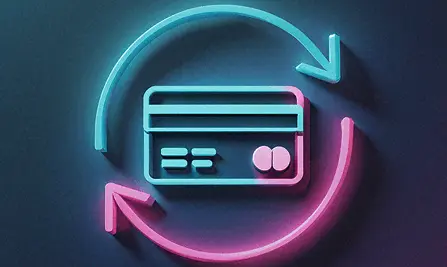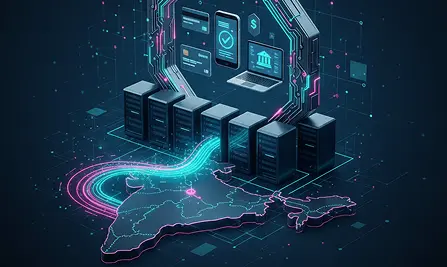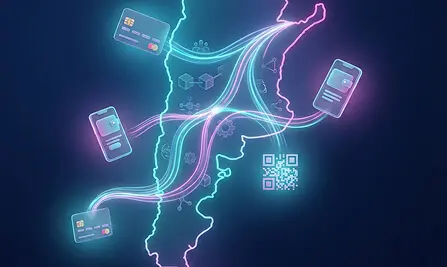What is payment processing?

What’s Fee Processing? 💳
Understanding the intricacies of payment processing is critical for consumers and businesses. Payment processing might appear like a straightforward venture, but it is a complicated system that performs an essential role within the economic atmosphere. In this text, we will delve into what payment processing is, how it works, and why it’s tremendous within global trade.
What Is Charge Processing?
Fee processing refers to the moves required to finish a transaction between a purchaser and a seller. It’s by far the backbone of electronic bills, ensuring that funds are transferred securely from the customer’s financial institution account to the merchant’s financial institution account. Whether you’re buying a coffee at your nearby café or buying a brand new system online, price processing is the invisible hand that guarantees the transaction is finished smoothly. For price processing to be efficient, it needs to handle both in-person and online transactions easily, ensuring that payments are processed fast and securely.
The Basic Method Of Price Processing
To recognize how payment processing works, let’s break down the steps involved in a normal transaction:
Authorization: The method starts when a purchaser makes a purchase, either in person or online. The customer provides their card info, typically by swiping or inserting a card, entering card details online, or using a digital wallet. The payment gateway processor then sends this data to the issuing bank, which in turn contacts the client’s issuing financial institution for authorization.
Authentication: The issuing financial institution verifies the card details and tests if the account has sufficient finances or credit available. It also assesses whether or not the transaction is legitimate or probably fraudulent. If everything checks out, the issuing financial institution sends an authorization code back to the service provider’s fee processor.
Transaction Approval Or Decline: Based totally on the reaction from the issuing financial institution, the transaction is either approved or declined. If approved, the merchant gets a confirmation, and the sale is finished. If declined, the customer may need to offer some other form of price.
Clearing And Settlement: After the transaction is approved, it moves to the clearing and agreement segment. During clearing, the transaction details are finalized, and the charge processor ensures that the transaction is recorded efficiently in both the service provider’s and purchaser’s debts. Settlement follows, in which the transfer of price range from the purchaser’s account to the merchant’s account is completed.
Investment: Ultimately, the merchant receives the price, minus any transaction expenses charged by the charge processor. This process may also take some days, depending on the charge approach and the agreements between the service provider and the price processor.
Key Players In Charge Processing
Several key players are involved in the payment processing environment. Understanding their roles is critical to comprehend how the process of payment functions:
Merchant: The business or person selling items or offerings and accepting credit card and debit card bills electronically.
Purchaser/Cardholder: The person purchasing goods or services using a credit score card, debit card, or different digital charge techniques.
Acquirer: The financial institution or economic institution that manages the merchant’s account. The acquirer strategies transactions on behalf of the service provider and ensures that funds are transferred appropriately.
Provider: The bank or economic institution that issued the client’s price card. The company is answerable for authorizing transactions and making sure the client has enough price range or credit.
Payment Processor: The organization or provider that allows the switch of finances between the service provider and the company. Fee processors are the intermediaries that deal with the transaction, ensuring protection and performance.
Card Networks: Entities like Visa, Mastercard, American Express, and Discover that act as a bridge between the obtaining and issuing banks. They offer the infrastructure that lets transactions be processed.
Sorts Of Charge Processing Structures
Payment processing systems can be widely classified into numerous sorts based on the mode of payment:
Credit Score Card Processing: One of the most common forms of price processing. When a purchaser makes use of a credit card, the transaction is processed through a payment network, and the issuer extends credit to the cardholder. The merchant is paid by the company, and the cardholder repays the issuer consistent with the terms of their credit score agreement. Accepting credit scorecards is important for most corporations today, as it offers clients flexible charge options.
Debit Card Processing: Similar to credit card processing, the price range is directly withdrawn from the consumer’s financial institution account. The transaction is nearly instantaneous, and there is no credit score involved. Debit card bills are often favoured for their simplicity and direct nature.
ACH (Automatic Clearing House) Processing: ACH transactions involve the electronic switch of finances among banks. They are regularly used for recurring payments, such as payroll or bill payments, and are typically slower than card transactions. ACH processing is normally used for direct financial institution transfers and different bulk transactions.
E-Wallets And Mobile Payments: With the rise of smartphones, mobile payments have become increasingly popular. Services like Apple Pay, Google Wallet, and PayPal allow customers to make bills using their cellular devices, with the transaction processed via the payment processor’s network.
Cryptocurrency Payments: An emerging form of fee processing, cryptocurrency transactions are processed through blockchain networks. At the same time, they are not yet as widely accepted as traditional charge methods; cryptocurrencies provide a decentralized, secure manner to transfer budget. These payments are processed differently, relying on distributed ledger technology to verify and document transactions.
The Importance Of Charge Processing
Price processing is vital to the functioning of modern-day commerce for several reasons:
Security: Payment processors implement various security measures, including encryption, tokenization, and fraud detection, to defend both merchants and customers from fraud and data breaches. Without those protections, digital payments could be far less secure, leading to higher fraud rates and decreased client confidence.
Efficiency: Fee processing systems streamline transactions, allowing them to be completed in seconds or minutes rather than days. This speed is important for both in-person and online transactions, where customers expect quick and seamless service.
Convenience: Fee processing structures allow a wide variety of fee techniques, catering to different purchaser alternatives. Whether a customer desires to pay with a credit card, debit card, cellular wallet, or cryptocurrency, a robust charge processing system can accommodate their needs.
Global Reach: Price processors allow organizations to accept bills from customers all over the world. This international reach is particularly essential for e-commerce corporations that rely on worldwide income.
Consumer Trust: A reliable charge processing system builds consumer trust. When clients know that their charge information is secure and that transactions can be processed smoothly, they are more likely to make repeat purchases.
Service Provider Revenue: By facilitating quick and secure transactions, fee processors assist merchants in maximizing their revenue. Fewer declined transactions, reduced fraud, and the ability to accept a wide variety of fee strategies all contribute to increased income.
Future Trends In Fee Processing
The world of charge processing is constantly evolving, driven by technological improvements and changing consumer preferences. Here are a few trends that are likely to shape the future of charge processing:
Contactless Payments: The COVID-19 pandemic accelerated the adoption of contactless bills, and this trend is likely to continue. Clients appreciate the ease and hygiene benefits of tap-and-go payments, and companies are increasingly investing in contactless price technology.
Artificial Intelligence (AI) In Fraud Detection: AI and machine learning are playing an increasingly essential role in fraud detection. By analysing massive amounts of transaction information, AI can identify patterns that can suggest fraudulent activity and prevent fraud before it happens.
Biometric Payments: Biometric authentication methods, including fingerprint scanning and facial recognition, have become more common in fee processing. Those strategies offer a better degree of protection compared to standard passwords or PINs.
Blockchain Era: Blockchain, the era behind cryptocurrencies, has the potential to revolutionize charge processing. Blockchain can offer a secure, transparent, and decentralized method of processing bills, reducing the need for intermediaries like banks and payment processors.
Enhanced Customer Experience: Fee processors are increasingly specializing in improving the purchaser experience. This includes providing more payment options, decreasing checkout times, and offering personalized payment studies based on client preferences.
Law And Compliance: As governments around the world continue to develop rules related to price processing, organizations will need to stay informed and compliant. This is particularly important for corporations operating across the world, where they will need to navigate different regulatory environments.
Charge Processing In Rising Markets
In rising markets, where conventional banking infrastructure may be less developed, payment processing plays a critical role in financial inclusion. Mobile bills, in particular, have become a lifeline in regions where access to banking services is restricted. Charge processors in those markets must adapt to local situations, including various degrees of internet connectivity and exclusive regulatory requirements. They regularly need to provide innovative fee solutions, including offline fee options or integration with nearby mobile cash offerings, to serve the needs of businesses and consumers in those areas effectively.
Moral Concerns In Payment Processing
Ethical concerns in price processing are increasingly crucial as customers and businesses become more aware of the social and environmental impact of their economic decisions. This includes issues such as fair transaction costs, transparency in terms of service, and the ethical use of customer records. A few fee processors are responding to this demand by implementing policies that promote fair trade, assist social reasons, or reduce their environmental footprint. For corporations, aligning with ethical charge processors can enhance their brand reputation and appeal to socially conscious purchasers.
End: The Future Of Charge Processing
As we look to the future, it’s clear that fee processing will continue to evolve, driven by technological improvements, regulatory changes, and shifting purchaser preferences. Organizations that stay ahead of these developments by adopting the latest price technologies, ensuring compliance with regulations, and focusing on consumer experience will be well-placed to thrive in the increasingly competitive market.
For customers, the ongoing developments in charge processing promise greater comfort, safety, and desire. Whether through the rise of contactless bills, the combination of AI in fraud prevention, or the adoption of new price techniques like cryptocurrencies, the future of fee processing is one of innovation and transformation.
In conclusion, price processing is far more than a simple transaction mechanism; it is a critical enabler of global commerce, a protector of consumer and merchant interests, and a driver of economic growth. By understanding the complexities and importance of charge processing, groups and consumers alike can navigate the digital economy with confidence and security.
FAQ
What is fee processing?
Fee processing refers to the actions required to complete a transaction between a buyer and a seller, ensuring secure fund transfers from the customer’s bank account to the merchant’s account.
How does the authorization step work in fee processing?
During authorization, the payment processor sends the customer’s payment data to the issuing bank, which verifies the card details and checks the availability of funds before approving or declining the transaction.
What are the key players involved in fee processing?
Key players include the merchant, cardholder, acquirer (merchant’s bank), issuer (customer’s bank), payment processor, and card networks like Visa and Mastercard.
What is the difference between credit card and debit card processing?
redit card processing involves extending credit to the customer, while debit card processing directly withdraws funds from the customer’s bank account, with no credit involved.
How is the future of fee processing expected to evolve?
The future will see more contactless payments, AI-driven fraud detection, biometric authentication, blockchain technology, and an enhanced customer experience.







